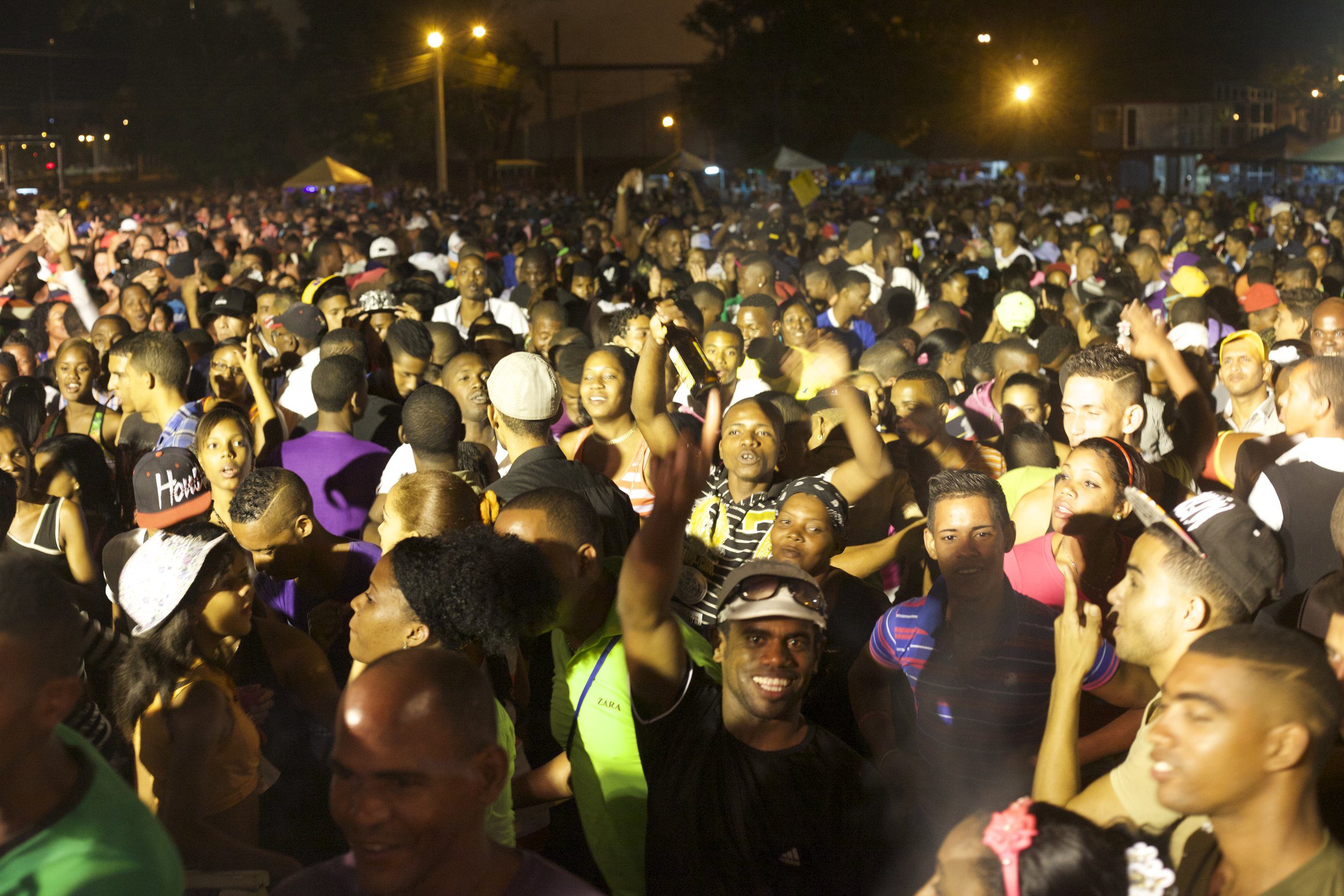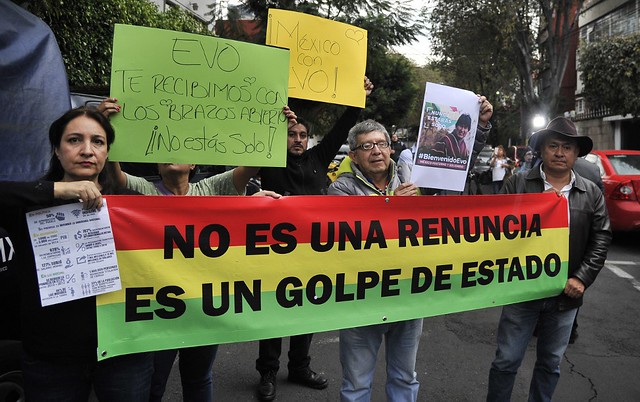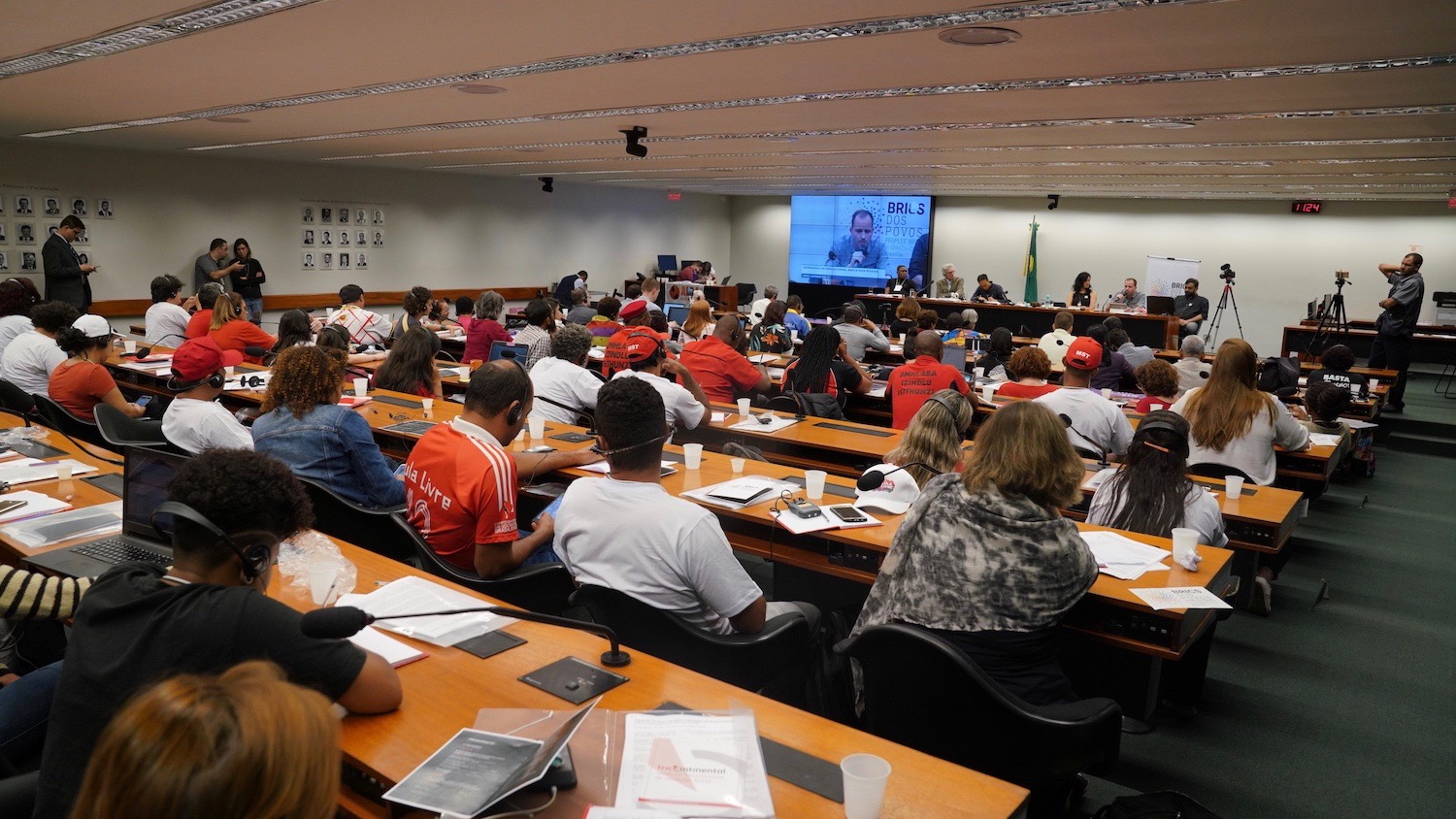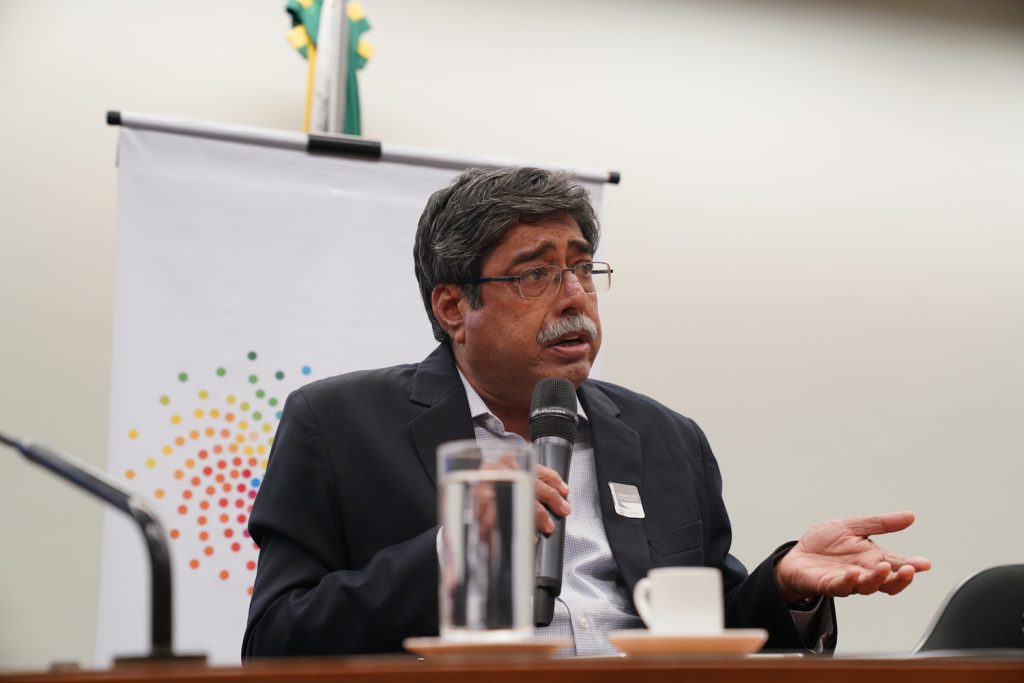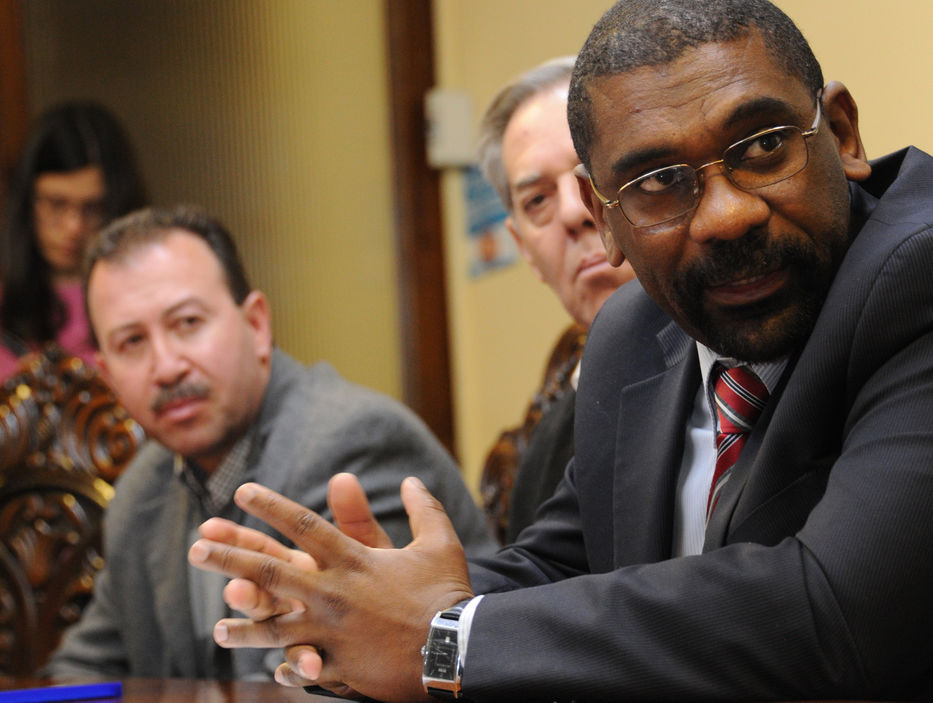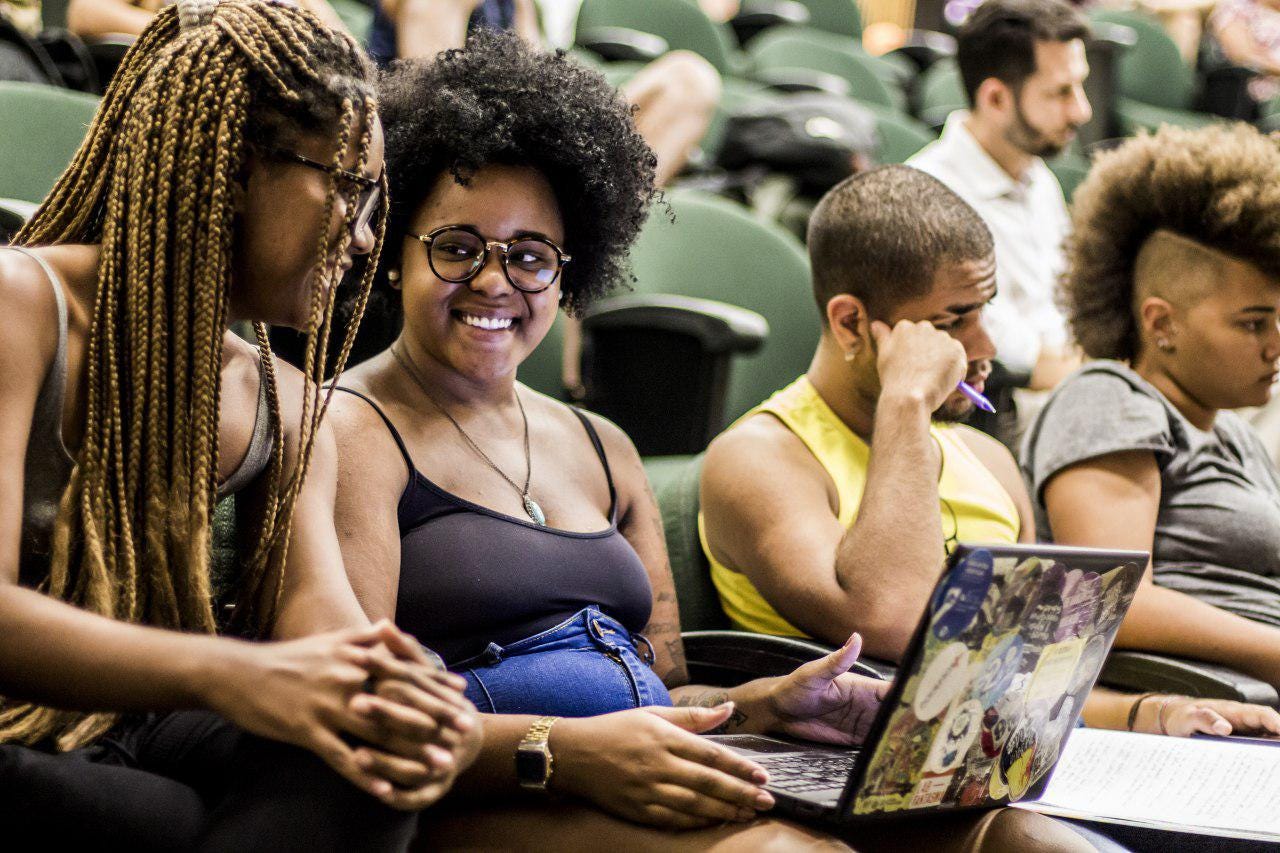The Supreme Court freed Lula but it could also affect thousands of black people: the racist impacts of imprisonment after the first appeal's unconstitutionality
By Marcos Rezende and Luis Paulo Bastos
November 8, 2019
Brazil has the third largest prison population in the world after the United States and China. The punitive perspective of Brazil's juridical-political system results in approximately 812,564 prisoners in the country, according to the National Bank of Arrest Warrants, a database created by the National Justice Council.
In a country that has its structures rooted in the concentration of privileges in a white patriarchy, the historical vulnerability of the black population makes the juridical-political system — forged upon the foundations of structural racism — support the mass encarceration of black people policy. The Supreme Court's latest decision — although not backed by legal grounds that promote racial equality and the black population's presumption of innocence — presents an important milestone for ensuring the black and brown population's right to freedom.
On November 7, 2019, the Supreme Court ruled three Declaratory Constitutional Actions (ADCs): 43, 44 and 54, which analyzed the constitutionality of the rule included in Article 283 of the Criminal Procedure Code. The rule states that “no one shall be arrested except in the act of committing a criminal offense or by a written order from the competent judicial authority as a result of a final judgement or, in the course of an investigation, because of temporary or preventive detention”.
The procedural rule is the defendants' presumption of innocence so that, except for the cases of temporary or preventive detention, they can only be arrested after res judicata (exhaustion of appeal possibilities) of the respective proceedings. It is important to note that for some time, the Supreme Court recognized the constitutionality of recognized the constitutionality of imprisonment after the first appeal, even with the constitutional provision that “no one shall be found guilty until the final judgment” (Art. 5, LVII).
Now, after the ruling of ADCs 43, 44 e 54, the Court reviewed the position and, with the score of 6 to 5, declared the constitutionality of the rule contained in Art. 283 of the Criminal Procedure Code, so that the serving of the sentence should begin only after all possibilities of appeal have been exhausted. The new understanding points to a probable growth in the requests for release, as it supports the grounds of the unconstitutionality of imprisonment resulting from the enforcement of judgments prior to their res judicata.
Considering that 61,7% of Brazilian prisoners are self-declared black or brown (according to 2018 from the National Prison Information Survey) it is believed that release requests could benefit the majority black prison population. However, accessing the bodies of the Justice System, which include the Public Defender's Office and the Public Prosecutor's Office, is not so easy for the black population, especially when deprived of their freedom. It should be pointed out that there is an insufficient number of Public Defenders to meet the needs of Brazil's prison population, largely assisted by the Public Defender's Office's professionals.
It should also be noted that the contact of prisoners with the Public Prosecutor's Office occurs only at the time of hearings and under the condition of accuser, which often implies jeopardy in the enforcement of laws and legality of prisons, also the competence of the ministerial body. With this, we want to warn that it is time to recognize victory in one of the battles of those who dedicate their lives to defending the constitution, especially with regard to fundamental rights and guarantees.
But one cannot overlook that, in a racist society, the punitive nature of the Brazilian system weighs unequally on black people, who are the main victims of fundamental rights violations, especially when practiced by the Brazilian State.
It is urgent to improve the Justice System! Training judges and justices from a perspective other than that of racist legality is a minimum condition for black people to enjoy their freedom which has been restrained from the days of legalized slavery to the present times of an unfinished abolition. Deconstructing the State's punitive view of the black population, a product of the master/slave dichotomy, depends on decolonizing the thoughts that rule the dominant forces in Brazil and occupy the spaces of power and prestige, whether family members of the oligarchy or their nominees to enjoy “meritocratic privileges”.
What is at stake here is the political imprisonment of black people by the State, throwing them into the ditch of vulnerabilities caused by race and class inequalities to criminalize the response of the oppressed on behalf of maintaining the oppressor's privileges.
The Supreme Court freed Lula but it could also affect thousands of black people: the racist impacts of imprisonment after the first appeal's unconstitutionality
By Marcos Rezende and Luis Paulo Bastos
November 8, 2019
Brazil has the third largest prison population in the world after the United States and China. The punitive perspective of Brazil's juridical-political system results in approximately 812,564 prisoners in the country, according to the National Bank of Arrest Warrants, a database created by the National Justice Council.
In a country that has its structures rooted in the concentration of privileges in a white patriarchy, the historical vulnerability of the black population makes the juridical-political system — forged upon the foundations of structural racism — support the mass encarceration of black people policy. The Supreme Court's latest decision — although not backed by legal grounds that promote racial equality and the black population's presumption of innocence — presents an important milestone for ensuring the black and brown population's right to freedom.
On November 7, 2019, the Supreme Court ruled three Declaratory Constitutional Actions (ADCs): 43, 44 and 54, which analyzed the constitutionality of the rule included in Article 283 of the Criminal Procedure Code. The rule states that “no one shall be arrested except in the act of committing a criminal offense or by a written order from the competent judicial authority as a result of a final judgement or, in the course of an investigation, because of temporary or preventive detention”.
The procedural rule is the defendants' presumption of innocence so that, except for the cases of temporary or preventive detention, they can only be arrested after res judicata (exhaustion of appeal possibilities) of the respective proceedings. It is important to note that for some time, the Supreme Court recognized the constitutionality of recognized the constitutionality of imprisonment after the first appeal, even with the constitutional provision that “no one shall be found guilty until the final judgment” (Art. 5, LVII).
Now, after the ruling of ADCs 43, 44 e 54, the Court reviewed the position and, with the score of 6 to 5, declared the constitutionality of the rule contained in Art. 283 of the Criminal Procedure Code, so that the serving of the sentence should begin only after all possibilities of appeal have been exhausted. The new understanding points to a probable growth in the requests for release, as it supports the grounds of the unconstitutionality of imprisonment resulting from the enforcement of judgments prior to their res judicata.
Considering that 61,7% of Brazilian prisoners are self-declared black or brown (according to 2018 from the National Prison Information Survey) it is believed that release requests could benefit the majority black prison population. However, accessing the bodies of the Justice System, which include the Public Defender's Office and the Public Prosecutor's Office, is not so easy for the black population, especially when deprived of their freedom. It should be pointed out that there is an insufficient number of Public Defenders to meet the needs of Brazil's prison population, largely assisted by the Public Defender's Office's professionals.
It should also be noted that the contact of prisoners with the Public Prosecutor's Office occurs only at the time of hearings and under the condition of accuser, which often implies jeopardy in the enforcement of laws and legality of prisons, also the competence of the ministerial body. With this, we want to warn that it is time to recognize victory in one of the battles of those who dedicate their lives to defending the constitution, especially with regard to fundamental rights and guarantees.
But one cannot overlook that, in a racist society, the punitive nature of the Brazilian system weighs unequally on black people, who are the main victims of fundamental rights violations, especially when practiced by the Brazilian State.
It is urgent to improve the Justice System! Training judges and justices from a perspective other than that of racist legality is a minimum condition for black people to enjoy their freedom which has been restrained from the days of legalized slavery to the present times of an unfinished abolition. Deconstructing the State's punitive view of the black population, a product of the master/slave dichotomy, depends on decolonizing the thoughts that rule the dominant forces in Brazil and occupy the spaces of power and prestige, whether family members of the oligarchy or their nominees to enjoy “meritocratic privileges”.
What is at stake here is the political imprisonment of black people by the State, throwing them into the ditch of vulnerabilities caused by race and class inequalities to criminalize the response of the oppressed on behalf of maintaining the oppressor's privileges.
The Supreme Court freed Lula but it could also affect thousands of black people: the racist impacts of imprisonment after the first appeal's unconstitutionality






